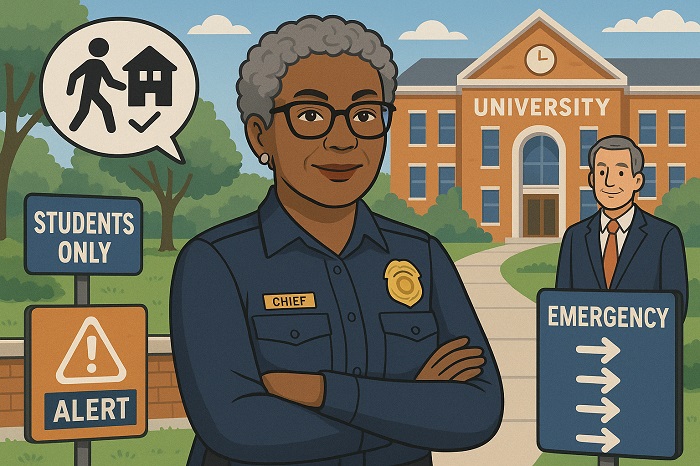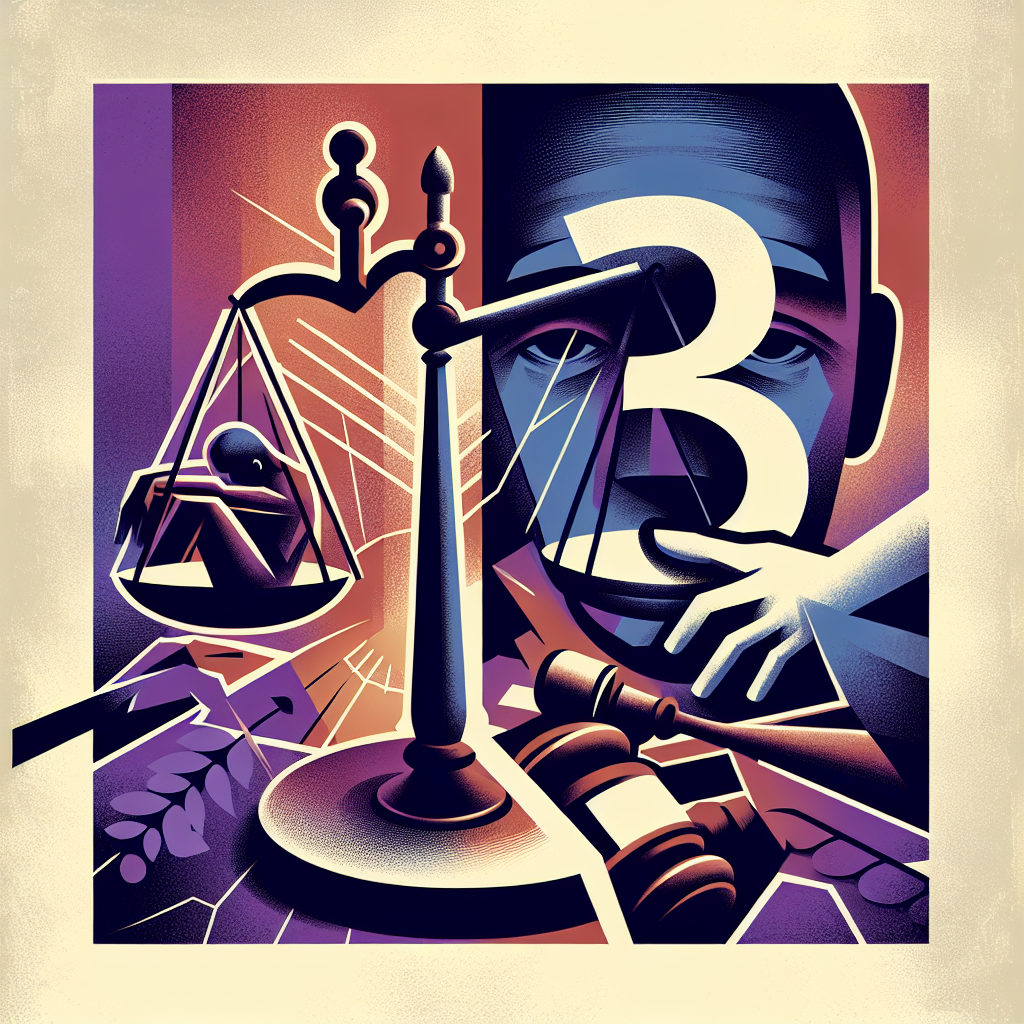News from the South - Georgia News Feed
Georgia’s “anti-doxxing” legislation upsets the balance between free speech and privacy

Georgia’s ‘anti-doxxing’ legislation upsets the balance between free speech and privacy
by Harsh Patel, Georgia Recorder
March 18, 2025
No one – whether they are a private figure or a public official – wants to be harassed online with their private information paraded about for others to use to target them or their family members.
For instance, Eliud Bonilla, an American citizen, was temporarily removed from the voter rolls in Virginia due to a clerical error. Even though his voter registration was restored, a watchdog group published his personal information online, suggesting that he was a “noncitizen voter” who had committed voter fraud, causing him to fear for his safety. This sort of thing shouldn’t happen.
Unfortunately, the legislative fix that the Georgia General Assembly is working on – Senate Bill 27 – isn’t threading the needle quite right. In its current form, it would prohibit large amounts of truthful speech while still not effectively safeguarding people’s personal information. Moreover, SB 27 would largely duplicate already existing laws that criminalize much of the conduct the bill seeks to prevent.
The legislation makes it a crime to electronically post or transmit another person’s identifying information, including their name or where they work, if that information is “reasonably likely” to be used by another party to cause the identified person “reasonable fear” of physical injury, significant economic injury, or mental anguish.
There are several concerns with this expansive definition of criminal liability. First, it outlaws sharing identifying information that is already public. These days, people publicly post information about themselves online all the time, whether it’s photos on Instagram or their employment history on LinkedIn. Yet, another person who shares this already-public information could still be criminally charged under SB 27 if a third party uses it to harass or intimidate the identified party.
This leads to a second problem with the bill: It requires a person sharing identifying information about another to predict what a third party is “reasonably likely” to do with it. For instance, someone who posts a critical comment in a Facebook group about a local official that includes the official’s name and where they work, may find themselves arrested under SB 27 if another person in the group (whom the poster is unaware of) then sends violent hate mail to the official. SB 27 also contains no requirement that the third party’s malicious use of the identifying information occur close to the time when the poster shared it. So, even if the hate mail was sent months after the post was made, the poster could still be charged. The uncertainty of trying to forecast the future actions of unknown third parties will leave would-be critics no choice but to stay silent if they want to avoid criminal liability under SB 27.
A third problem with the bill is that it does not require actual injury to result from the posting of identifying information. It only requires that the information be used in a manner that would cause the identified person to have “reasonable fear” of stalking or physical harm, or to experience significant economic harm or emotional distress. This adds yet another layer of unpredictability about what can lawfully be shared because of the subjective nature of what amounts to grounds for “reasonable fear.”
Taken together, SB 27’s defects make it nearly impossible for would-be speakers to distinguish what information about another person can be electronically transmitted versus what could land them in jail. This will chill far more speech than the drafters of the bill likely meant to deter. As the United States Supreme Court has long recognized, laws with uncertain meanings as to what speech is prohibited “inevitably lead citizens to steer far wider of the unlawful zone . . . than if the boundaries of the forbidden areas were clearly marked.”
To be sure, SB 27 requires that the person transmitting the personally identifying information do so with “reckless disregard” for how others might use the information, but that provides no safe harbor from criminal prosecution. “Reckless disregard” can easily be alleged, even if it cannot ultimately be proven. Similarly, the bill contains a “constitutional savings clause” that says it’s not a crime if you post the information in furtherance of constitutionally protected activity. But, this is only an affirmative defense the poster will still have to prove. People will choose not to exercise their First Amendment right to speak, rather than risk fighting a criminal prosecution.
Finally, SB 27 is largely duplicative of other Georgia laws that already prohibit the same conduct the bill seeks to deter. For instance, Georgia common law already recognizes the tort of publication of private facts. Georgia Code § 16-11-39.1 classifies harassing as any form of electronic communication being used to harm others. And Georgia Code § 16-11-37 punishes an individual who makes a threat of violent crime toward others. With such laws already on the books, SB 27 would be detrimental to First Amendment rights without actually providing significant additional protections to potential crime victims.
The best course of action would be for the Georgia Legislature to reject SB 27. Short of that, the bill should be narrowed to restrict only the posting of identifying information that is not otherwise publicly available (e.g., bank account, Social Security, or unpublished cellphone numbers); require that the poster intentionally share the information for the sole purpose of causing violence or harassment toward the individual identified; and require that the sharing of the information cause actual harm (either physical, emotional or financial) to the identified person. Georgia lawmakers should take a critical look at SB 27 and either set it aside or significantly narrow it.
GET THE MORNING HEADLINES.
Georgia Recorder is part of States Newsroom, a nonprofit news network supported by grants and a coalition of donors as a 501c(3) public charity. Georgia Recorder maintains editorial independence. Contact Editor John McCosh for questions: info@georgiarecorder.com.
The post Georgia’s “anti-doxxing” legislation upsets the balance between free speech and privacy appeared first on georgiarecorder.com
News from the South - Georgia News Feed
Savannah State University police talk campus safety

SUMMARY: Savannah State University’s Police Chief Clarella Thomas, in her role for over a year, emphasizes enhancing campus safety protocols in light of recent school shootings. As a mother of college students, she understands parents’ concerns about safety. Encouraging the phrase “see something, say something,” she highlights community involvement in safety measures. Thomas’s team is upgrading emergency plans and promoting the emergency notification system, Everbridge. This summer, they’ll collaborate with external law enforcement for drills. Chief Thomas, alongside SSU’s new president, aims to improve security further, especially with the upcoming Orange Crush festival, restricting campus access to students only.
The post Savannah State University police talk campus safety appeared first on www.wsav.com
News from the South - Georgia News Feed
FSU shooting: Will the suspected gunman’s mother face charges?

SUMMARY: A 20-year-old Florida State University student, Phoenix Ikner, allegedly used a service weapon belonging to his mother, a sheriff’s deputy, to fatally shoot two men and injure six others at the university. Legal experts, including former Judge Elizabeth Scherer, indicated it’s too early to determine if his mother could face charges, depending on her knowledge of her son’s dangers and the weapon’s accessibility. While parents of juvenile shooters have faced charges in the past, the adult status of Ikner complicates potential liability. Investigators are still probing the case, with a motive yet to be disclosed.
The post FSU shooting: Will the suspected gunman's mother face charges? appeared first on www.wsav.com
News from the South - Georgia News Feed
ONLY ON 3: Man convicted of voluntary manslaughter says he deserves new trial

SUMMARY: Preston Oates, convicted of voluntary manslaughter and gun charges in the 2014 killing of Carlos Olivera, is seeking a new trial. Oates claims ineffective counsel, prosecutorial misconduct, and unexamined evidence during his trial. He continues to deny responsibility, arguing bias from law enforcement and improper handling of key evidence. Oates shot Olivera after a confrontation over a vehicle booting incident, with prosecutors stating he was the aggressor. Oates’ appeal was denied by the South Carolina Supreme Court, and his family and Olivera’s family were present at the hearing. The next hearing is scheduled for April 24.
The post ONLY ON 3: Man convicted of voluntary manslaughter says he deserves new trial appeared first on www.wsav.com
-

 Mississippi Today6 days ago
Mississippi Today6 days agoLawmakers used to fail passing a budget over policy disagreement. This year, they failed over childish bickering.
-

 Mississippi Today6 days ago
Mississippi Today6 days agoOn this day in 1873, La. courthouse scene of racial carnage
-

 Local News6 days ago
Local News6 days agoSouthern Miss Professor Inducted into U.S. Hydrographer Hall of Fame
-

 News from the South - Alabama News Feed5 days ago
News from the South - Alabama News Feed5 days agoFoley man wins Race to the Finish as Kyle Larson gets first win of 2025 Xfinity Series at Bristol
-

 News from the South - Alabama News Feed5 days ago
News from the South - Alabama News Feed5 days agoFederal appeals court upholds ruling against Alabama panhandling laws
-

 News from the South - Florida News Feed7 days ago
News from the South - Florida News Feed7 days agoSevere weather has come and gone for Central Florida, but the rain went with it
-

 News from the South - Florida News Feed6 days ago
News from the South - Florida News Feed6 days agoJacksonville University only school with 2 finalist teams in NASA’s 2025 Human Lander Challenge
-

 News from the South - Alabama News Feed7 days ago
News from the South - Alabama News Feed7 days agoBellingrath Gardens previews its first Chinese Lantern Festival








































